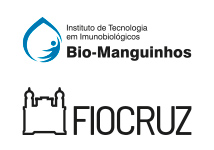The World Health Organization (WHO) released, on the 12th of July, the document “An analysis of bacterial vaccines in preclinical and clinical development: 2021”, its first pipeline report presenting the vaccines in technological development for the prevention of infections caused by antimicrobial resistant (AMR) pathogens.
Mostly bacterial, these infections can also be caused by fungi and parasites that change over time and no longer respond to existing medications. “When an individual becomes infected with these microbes, the infection is said to be resistant to antimicrobial medicines. These infections are often difficult to treat”, exemplifies the WHO, which calls for accelerating trials of AMR-related vaccines at an advanced stage of development and maximizing the use of existing vaccines.
“The silent pandemic of antimicrobial resistance is of major growing public health concern. Resistant bacterial infections alone are associated with nearly 4.95 million deaths per year, with 1.27 million deaths directly attributed to AMR”, highlights the Organization.
“Vaccines are powerful tools to prevent infections in the first place, and therefore have the potential to curb the spread of AMR infections. The AMR vaccine pipeline report aims to guide investments and research into feasible vaccines to mitigate AMR”, complements the WHO.
The document identifies 61 vaccine candidates in various stages of clinical development and 94 candidates in preclinical development. The Bio-Manguinhos conjugate vaccine project against Acinetobacter baumannii and Streptococcus agalactiae, currently in a preclinical stage, is part of the research.
Most of these vaccine candidates, however, will not be available anytime soon. “Preventing infections using vaccination reduces the use of antibiotics, which is one of the main drivers of AMR. Yet of the top six bacterial pathogens responsible for deaths due to AMR, only one, Pneumococcal disease (Streptococcus pneumoniae) has a vaccine” said Dr Hanan Balkhy, WHO Assistant Director-General, Antimicrobial Resistance.
“Affordable and equitable access to life-saving vaccines such as those against pneumococcus, are urgently needed to save lives, and mitigate the rise of AMR” she added.
This call for equitable, global access to existing vaccines, “especially among populations that need them most and in resource-limited settings,” addresses four bacterial pathogens that the WHO ranks as a priority: pneumococcal disease (Streptococcus pneumoniae), Hib (Haemophilus influenzae type b), tuberculosis (Mycobacterium tuberculosis), and typhoid fever (Salmonella Typhi).
In Brazil, the National Immunization Program (PNI) provides the population with the 10-valent pneumococcal and Hib vaccines free of charge. Both are part of Bio-Manguinhos’ portfolio.
“Current Bacillus Calmette-Guérin (BCG) vaccines against tuberculosis (TB) do not adequately protect against TB and the development of more effective vaccines against TB should be accelerated. The remaining three vaccines are effective, and we need to increase the number of people receiving them to contribute to a reduction in the use of antibiotics and prevent further deaths.”, highlights the WHO statement on the release of the report.
Because the 61 vaccine candidates described in the report are unlikely to be available in the short term, WHO asks developers to “disruptive approaches” both to enrich the pipeline and to accelerate the development of each of the existing projects.
The Organization points to lessons from the development of vaccines for COVID-19, such as mRNA vaccines, as a unique opportunity for the development of vaccines against bacteria.
“Vaccine development is expensive, and scientifically challenging, and are associated with high failure rates. For successful candidates complex regulatory and manufacturing requirements often exist. We have to leverage the lessons of COVID vaccine development and speed up our search for vaccines to address AMR.” said Dr Kate O’Brien, Director of Immunization, Vaccines and Biologicals Department at WHO.
In the case of antimicrobial resistance, an additional challenge – highlighted in the report – is the choice of pathogens associated with hospital-acquired infections.
“These include the difficulty in defining target population(s) among all admitted hospital patients; the cost and complexity of vaccine efficacy trials; and the lack of regulatory and/or policy precedent for vaccines against HAIs”, indicates the document.
The full report can be read here.
Journalist: Paulo Schueler, with information from the WHO.
Translation: Juliana Xavier
Image: Raquel Portugal, Fiocruz Imagens.


